“You can have all the riches and success in the world, but if you don’t have your health, you have nothing.” [Steven Adler]. Spoiler Alert – WHO on the rack.
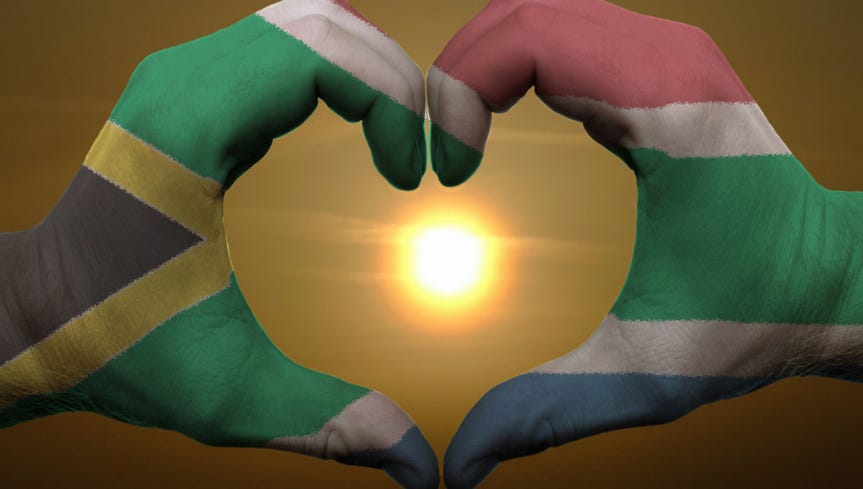
The Election is over, and the dust has settled to a degree, but what does it mean for the next five years of this new and very different government? South Africa stands on the brink of political transformation, the echoes of its colonial past reverberate through the streets.
Last month’s election marked a watershed moment, stirring fears and hopes alike. The ANC, a once-unifying force, now faces unprecedented challenges, as a handful of political leaders navigate a path towards a coalition for the first time since 1994. The nation’s fate hangs in the balance, with the “national question” of what the South African people truly want and need begins to resurface with renewed urgency.
South Africa faces a challenging political landscape following the 2024 election, with the ANC having its majority and only 40% of the vote. Forming a coalition is necessary but fraught with difficulties. Potential coalitions with the Economic Freedom Fighters (EFF), uMkhonto weSizwe (MK), or the Democratic Alliance (DA) all pose risks, potentially exacerbating economic instability and investor uncertainty. The rand took a fall against the US dollar but is now recovering. I guess investors are happy with the new ANC/DA coalition agreed yesterday in Cape Town.
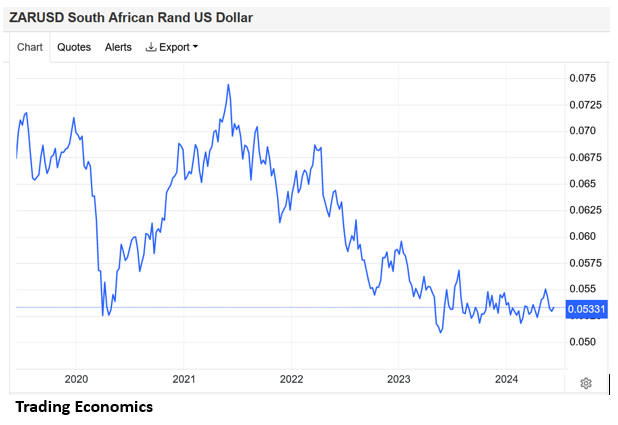
Leading politicians will require good negotiating skills, compromise, and cooperation in a challenging atmosphere, fraught with partners dicing for advantage, in a sluggish economy. South Africa is coping with negative per capita growth, high and rising unemployment, poverty and inequality, a government deeply in debt, and 26 million people (42% of the population) on grants. But South Africa is not alone as these economic conditions also prevail in most of the Western world; I wrote about this global economy two years ago.
President Ramaphosa’s raison d’etre is personal power and wealth whilst walking a precarious tightrope, juggling personal power, and factional battles. The ANC is haunted by factionalism, corruption, and regional divides. What has he achieved for the ANC and, by implication, the country? Besides holding both more-or-less together in extremely fractious circumstances he is not a visionary leader but is a skilled organisational operator.
The recent motion to close the Israeli embassy in Pretoria and sever diplomatic ties with Israel saw the ANC trailing behind the EFF in the National Assembly, accentuating the EFF’s political prowess. EFF leader, Julius Malema utilised the Gaza crisis, leaving the ANC with little choice but to support the motion.
Malema’s skills were also on show during the ANC’s voter registration campaign in Soweto, where he navigated the ANC’s heartland, leaving behind a trail of unexpected alliances and shifting loyalties. A coalition between the ANC, the EFF, or MK will not be easy to settle.
Founded a decade ago, the EFF represents alienated, excluded youth, who feel the deal struck in 1994 doesn’t benefit them. This reflects the frustration of Gen Z in the Western world where there is little hope for this cohort to improve their lot. For Zuma’s MK, an understanding of the man and the role he has played in KwaZulu-Natal over almost 40 years.
In the early 1990s, before the first democratic elections, he played a key role in conciliating the bloody conflict between the Inkatha Freedom Party (IFP) and the ANC. From humble, rural beginnings, the anti-apartheid struggle, and prison, he made it to deputy president of both the party and the country. And then President Thabo Mbeki axed him as deputy president of the country following his implication in a corruption scandal.
But Zuma fought back, this time as president of the ANC and the country, and mobilised KwaZulu-Natal to support the ANC. He remains popular in KZN, as the regional election results show, scoring 45.9% of the vote. His lifetime achievement was inspirational to many, because, if a man from such humble beginnings could become president, then anything was possible for many.
Analysts have likened the party to a personality cult to push Zuma’s agenda, keep him out of prison, and continue to enrich his family. Others have accused the MK of being a crude expression of Zulu tribalism. The MK was also reportedly backed by Russian misinformation campaigns, that pushed lies about the DA and other opponents on social media. Regardless of the veracity of these analyses, the MK now boasts 58 seats in the National Assembly and a majority of 45.3% of the votes in KwaZulu-Natal. The MK now holds the keys to power in South Africa.
If the ANC accedes to Zuma’s demands, an ANC-MK coalition will have the seats needed to form a majority government. What will follow is likely more looting, a push for drastically illiberal reforms that preference tribal chieftains, customary law over democracy and the rule of law, and a dispensation far worse than anything we have seen thus far.
The EFF represents groups of people seriously aggrieved at the ANC’s neglect of them; they are angry and disgruntled. If the ANC wants a coalition with these two parties, it will have to offer the discontents something more than in the past. This will result in rising government expenditure and associated debt levels. If such a coalition raises taxes, to deliver on promises, investors will likely jump ship.
The private sector has been instrumental in improving electricity, transport, and harbour infrastructure, and a coalition will need to encourage these positive economic policies and mollify financial markets. South Africa might be on a knife edge but spare a thought for the Americans or the whole of Western Europe in the next few years, we’re not alone. Next up, the UK’s general election is on July 4, this should be fun – I will report on Saturday, June 29. Sources
- South Africa faces a tough five years
- SA’s three options for government, all are fraught with danger https://www.biznews.com/leadership/2024/06/09/sas-government-fraught-danger
- 2024 South Africa Election: Final national and provincial results and seat allocations https://businesstech.co.za/news/government/774786/2024-south-africa-election-final-national-and-provincial-results-and-seat-allocations/?utm_source=everlytic&utm_medium=newsletter&utm_campaign=businesstech
- Woode-Smith: Why SA needs a pro-free market coalition https://www.biznews.com/leadership/2024/06/09/woode-smith-pro-free-market-coalition
- RW Johnson: ANC/DA/IFP is SA democracy’s last hope – without it, all may be lost https://www.biznews.com/rwjohnson/2024/06/12/rw-johnson-anc-da-ifp-last-hope
ELECTION NEWS FLASH UPDATE – Government of National Unity (GNU) LATEST: The final Government of National Unity (GNU) agreement was signed yesterday at the Cape Town International Convention Centre, https://businesstech.co.za/news/government/777198/government-of-national-unity-what-the-da-anc-and-ifp-have-agreed-to/?utm_source=everlytic&utm_medium=newsletter&utm_campaign=businesstech
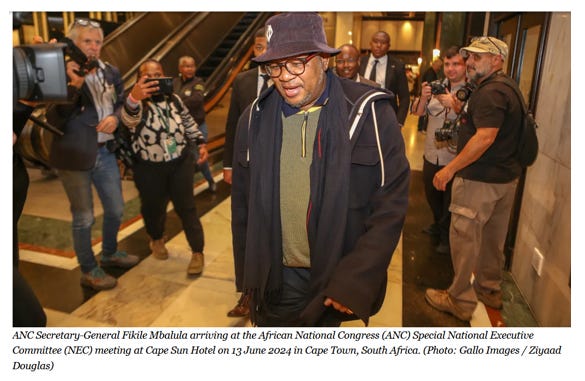
“We have engaged, like we said, with a number of political parties and we have reached a breakthrough on the common agreement that we need to work together…
“We have agreed that, as political parties, we need to gravitate towards the centre, except a few, who did not expressly support the GNU. We are not going to retreat on the concept of the GNU because we believe that the government of national unity, to us, represents the outcome of the elections,” Mbalula said.
However, he kept mum on details of the discussions between parties. “The ANC is not yet in a position to give details in relation to these discussions. We started exploratory discussions and that led to firming up positions by political parties, and us as well, firming up our position, which you know by now is [a] government of national unity,” he said.
“Agreements will be made public in the interest of transparency and accountability to the electorate.” Mbalula said the ANC was “humbled” by the fact that “the spirit of engagement with all South Africa’s political parties has been characterised by the common commitment to put the interest of the people first”.
STOP PRESS – ANALYSIS OF SA FOOD PRICES
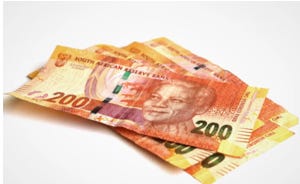
PMBEJD’s Household Food Affordability Index examined 44 food prices collected directly by data collectors from the shelves of 47 supermarkets and 32 butcheries that cater to the low-income market most frequented by the people in the areas where they are located. The basket compared the average food prices in Johannesburg, Durban, Cape Town, Springbok, Maritzburg, and Mtubatuba. The PMBEJD’s May 2024 Household Affordability Index displayed the average cost of a household food basket at R5,330. Source
- Financial pain for South Africans – something for the new government to address https://businesstech.co.za/news/lifestyle/774721/r2280-pain-for-south-african-households/?utm_source=everlytic&utm_medium=newsletter&utm_campaign=businesstech
NEWS FLASH – Eskom’s status has moved from ‘code red’ in the past two months
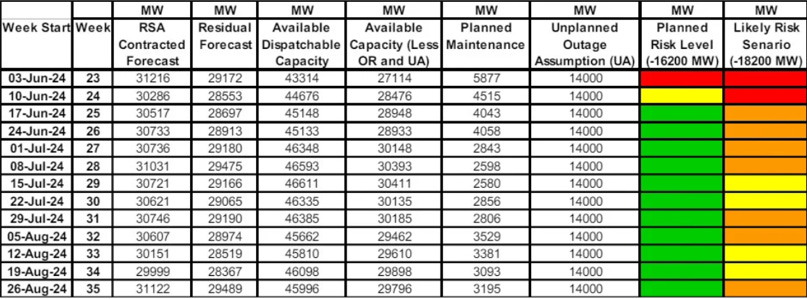
The plan involved expediting planned maintenance, increasing preventative maintenance, carrying out major plant refurbishments, and implementing life extension projects. A cold front has affected parts of South Africa since Monday, June 3; which means load shedding could return.
FUN TIDBIT – Mentally retarded Western leaders (hat tip to my friend in Florida)
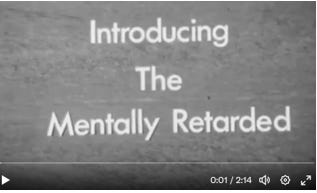
https://x.com/citizenfreepres/status/1795846715133599780?s=51
THOUGHT FOR THE WEEK – Is Africa the Covid Smoking Gun?
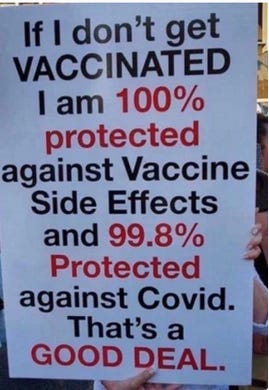
As it turns out, the African Smoking Gun for Depopulation remains as true today as was the conclusion in 2020: Based on Africa’s Covid survivability, there appears to be an organised effort to kill off a substantial number of people worldwide by unleashing a Covid-19 genetically engineered bioweapon, followed by a more dangerous coordinated public health response for the supposed antidote, a ‘vaccine’ which isn’t, based on mRNA untested, experimental technology. By medical convention, this ‘vaccine’ is a genetically engineered organism (GMO) defined as a ‘treatment’.
If any country wants its people to avoid serious injury or even death from exposure to Covid bioweapons (released intentionally or not), the public health response must (a) use a common sense approach of preventive medical treatments and most importantly (b) don’t inject mas of people with unnecessary and novel experimental treatments that were developed without established testing protocols. Source
- The Covid-19 smoking gun https://worldyturnings.com/2022/12/20/is-africa-the-covid-smoking-gun-part-2/
HERE IS THE EVIDENCE – with Internist, cardiologist, and epidemiologist Dr. Peter McCullough @P_McCulloughMD

https://x.com/SenseReceptor/status/1794240792048837073
I can add little to this testimony: “I think once people take this treatment they can’t psychologically handle the idea that it could have been a giant personal health mistake. And most of these people will say, ‘I don’t want to talk about it. [Dr. Peter McCullough]
Even doctors suffer denial: Quote: Dexter B@firon1983 – May 25 – “At our doctor, he told my wife and me. He said I don’t wanna hear about it anymore. Stop, stop don’t wanna hear about it and was very quick to change the subject.”
People who have taken the COVID-19 injections refuse to talk about how dangerous they are and what negative health effects they may be having. He notes this is a psychological block of sorts, and says that “they can’t handle” the idea that taking the injection was “a giant personal health mistake.” “Understanding what’s happening is slow. It’s very…very psychological,” McCullough says. ” I think once people take the vaccines they just can’t psychologically handle the idea that it could’ve been a giant personal health mistake. And most people who took the vaccines, they’ll tell you…they’ll say, ‘I don’t want to talk about it.’ That means psychologically they can’t handle it.” The physician goes on to ask rhetorically, “Why can’t we talk about it?” He adds that “the unvaccinated are far more worried than the vaccinated” and says that “we actually are showing more concern, [because we] can tell something’s wrong.” Sources
· Dr. Peter McCullough
BREAKING SOUTH AFRICAN NEWS – THE AFRICAN CHESSBOARD
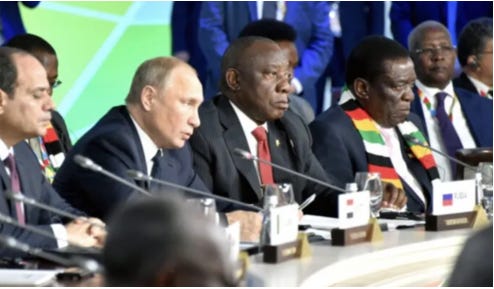
[Extracts lightly edited from Matthew Ehret’s Substack, June 8, 2024.] The geopolitical chessboard is rattling; the Money Cabal Oligarchy, having believed they had won the world in 1992 after the USSR imploded, is panicking.
Will they kick over the chessboard amidst a nuclear temper tantrum? Many traps have been laid to induce a myriad of wars around the world, but those traps have not been triggered by members of the Multipolar Alliance (aka, BRICS+). In this battlespace, the much-abused continent of Africa is one of the most strategic domains embracing a Eurasian orientation based on national sovereignty, long-term thinking, and large-scale investments in core infrastructure.
Recently, the Chinese officially gave the keys of three major rail grids to the governments of Djibouti, Kenya, and Rwanda after tens of thousands of African rail engineers, and technicians had been sufficiently trained to maintain and improve those Chinese-built systems themselves.
Meanwhile, Russia has offered unlimited nuclear energy assistance to all African nations willing to break from the IMF-IPCC zero technological growth model. Russia’s Wagner Military Agency has provided vital assistance to African nationalists wishing to resist Western-backed terrorist groups and puppet dictators.
These positive developments fly in the face of Western-intelligence narratives that have sought to project a demonising image of total corruption in Africa, and Russia and an image of imperial ambitions by China.
‘The Rising Tide Foundation’ continues its series of African-oriented presentations on Sunday, June 9, when Nicholas Jones will deliver a lecture and Q/A on the topic of ‘The African Chessboard’ – The previous two presentations by African experts PD Lawton and Lawrence Freeman can be viewed here and here. Source (Paywall)
· The African Chessboard
ZIMBABWE’S NEW ‘ZiG’ CURRENCY OFF TO A POOR START
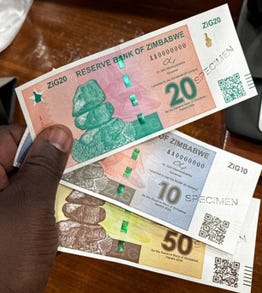
The Central Bank Governor said: ‘The President instructed me not to print money without reserves’ and with those words we staggered on. Coins denominated at 1, 2 and 5 ZiG were released along with a 10 Zig note (worth 75 cents), but they were so few and far between that most people still haven’t seen them two months later.
The Central Bank still hasn’t released the 20, 50,100 and 200 ZiG notes saying it wants to choke the black market and keep inflation at bay. In fact its done exactly the opposite as prices soar so that importers can resupply their shelves.
Looking at the bank note and two ZiG coins in my hand, it took a while to work out exactly how much I was holding: the equivalent of US$1.27, not even half a cup of coffee. Can you imagine living in a country where the biggest denomination bank note in circulation is only worth 75 cents, it’s utterly absurd. A litre of fuel is US$1.65 (ZAR31) so the biggest bank note isn’t even enough for half a litre of diesel!
Zimbabwe remains a silenced nation stumbling through this latest economic crisis. The voices of outrage have gone silent, the opposition leaders who should be speaking out for us have disappeared and we stand alone. Source
- Cathy Buckle: Zimbabwe’s chilling cold snap and scarce ZiG currency https://www.biznews.com/africa/2024/06/13/zimbabwes-chilling-cold-cathy-buckle
DIVERSITY, EQUITY, AND INCLUSION (DEI) – Educating South Africans about the corrosive social destruction taking place in the Collective West
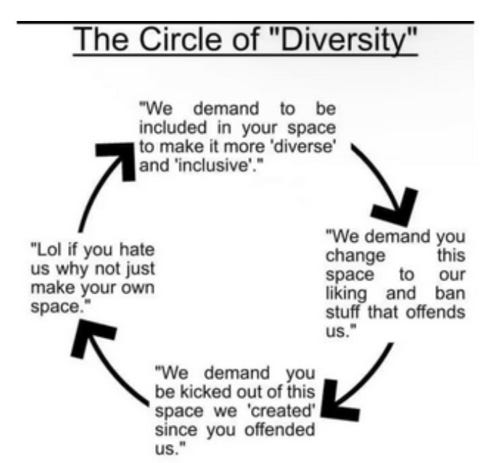
SURVIVAL MONITOR – STAY VIGILANT IN THE GLOBALIST JUNGLE
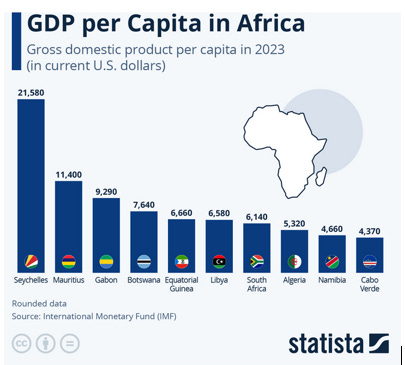
For protection from human predators, vigilance and critical thinking are essential silent weapons, as well as listening carefully to their malevolent utterances shrouded in sugary sentiments. Mortals will always have to contend with a measure of worldly danger but the greatest danger is an oppressive and bloated central state that presents in the guise of paternalistic benevolence.
Many are starting to understand that we have been consistently lied to since the beginning of the scamdemic in 2020. Nothing we have been told was true. The perpetrators have not been held accountable, have escaped retribution and punishment, and have even been rewarded.
INFLATION – R51,000 blow for homeowners in South Africa
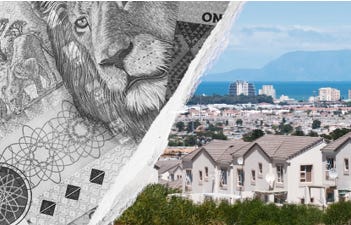
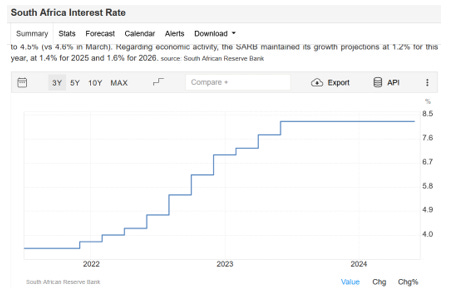
This is inflation par excellence created by global central banks claiming the need to tame inflation – an oxymoron. Central banks can ‘print’ as much money as they want, by controlling the money supply, although there are consequences. Merely printing more money doesn’t affect economic output or production levels, so money becomes less valuable and this causes inflation with more money chasing fewer goods and services.
- Debt servicing burdens consumers and homeowners alike, and living costs spiked, while salary hikes have been moderate. https://businesstech.co.za/news/property/774991/r51000-blow-for-homeowners-in-south-africa/?utm_source=everlytic&utm_medium=newsletter&utm_campaign=businesstech
NARRATIVE BATTLE – WHO has increased authority over global health emergencies
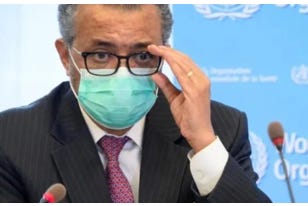
The battle continues, James Roguski said. “The recently adopted amendments will facilitate an enormous global build-up of the Pharmaceutical, Hospital Emergency Industrial Complex which seeks to trigger ongoing ‘pandemic emergencies’ that will be made even worse by ‘relevant health products’,” Roguski added.
Key Points of Contention:
- Increased WHO Power: The amendments abolish national sovereignty and allow the WHO to pass laws in Western nations.
- Criminalisation of Speech: Speaking out against WHO narratives, such as questioning the Bird Flu ‘vaccine’, could be prosecuted.
- Enhanced Surveillance: The groundwork is laid for increased surveillance and potential lockdowns/coerced/mandated kill-shots.
- Lack of Transparency: The amendments were adopted with little fanfare and limited public discussion.
Differing Perspectives:
- WHO and Supporters: The amendments strengthen global preparedness and response to pandemics. They are necessary to combat misinformation and protect public health.
- Critics: The amendments are an illegal power grab that threatens individual liberties and national sovereignty. The WHO’s definition of “misinformation” is overly broad and may be used to silence dissent.
Additional Developments:Pandemic Treaty: Negotiations for a global pandemic treaty are ongoing, with a final version expected by 2025.
- Legal Challenges: Some lawyers argue that the IHR amendments were illegally adopted and violated international law.
- Public Opposition: Grassroots organizations and individuals are actively opposing the WHO’s expanded powers.
Conclusion: The IHR amendments have sparked significant controversy and debate regarding the balance between public health and individual freedoms. The future implications of these amendments remain uncertain, but they are likely to have a significant impact on global health governance. Source Is this possible? 194 countries agree to arrest dissenters?
FINALLY – A THOUGHT
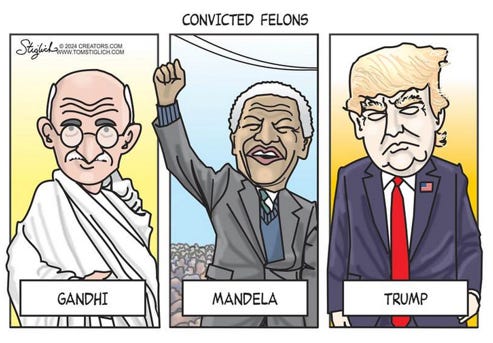
COMING NEXT:
- BOOM Weekly Global Review – Tuesday, June 18, 2024
- The Financial Jigsaw Part 2 – Chapter 5 – The Global Chessboard – Saturday, June 22, 2024
REFERENCES
- My Book: “The Financial Jigsaw” Parts 1 & 2 Scroll: https://www.researchgate.net/publication/358117070_THE_FINANCIAL_JIGSAW_-_PART_1_-_4th_Edition_2020 including regular updates.
- BOOM Finance and Economics Substack (Subscribe for Free) – also on LinkedIn and WordPress. Plus Covid Medical News Network CMN News and BOOM Blog — All Editorials (over 5 years) — BOOM Finance and Economics | Designed for Critical Thinkers — UPDATED WEEKLY (wordpress.com)
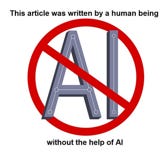









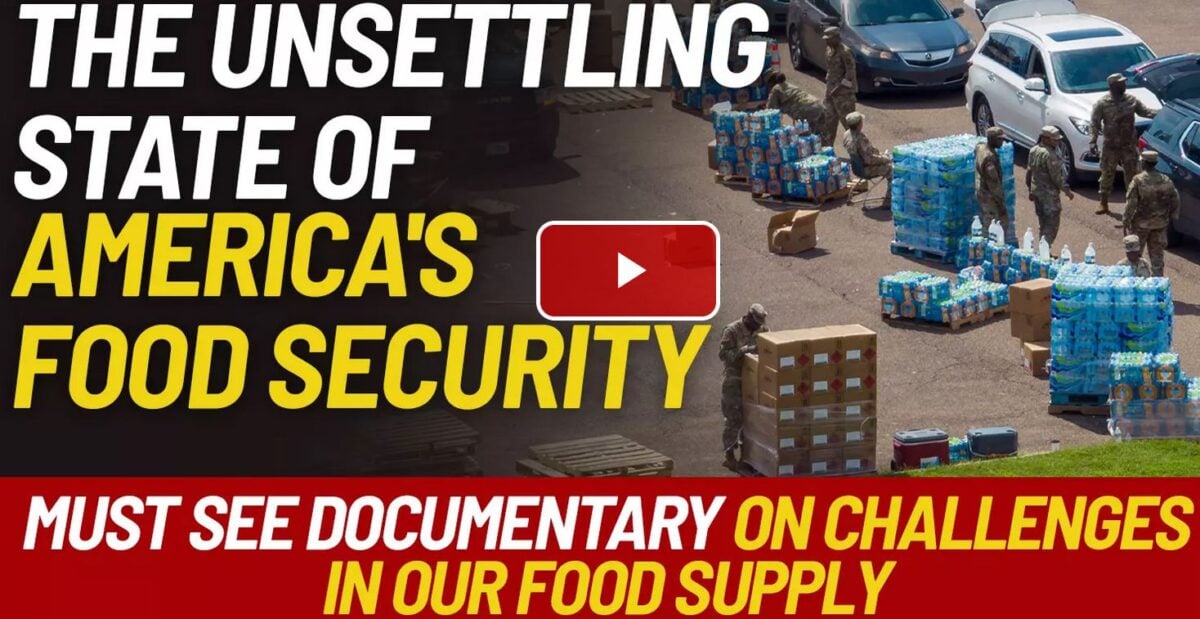
Where are all the anti-apartheid supporters now? Peter Hain?
Good question Steve – ask me one on sport! 🙂
To see the real South Africa beyond the tourist traps and suburb enclosures, beyond the BS rainbow nation nonsense, see this guys Twitter page … eye opening …
https://x.com/k9_reaper
Thanks aka, we are prepared – no worries:
You can stay in your safe place if you want to – life is about living, risk, and adventure, but it’s not everyone’s cup of tea.
If coloreds run it, things will come out badly. It doesn’t matter where you are either.
LOL – the Coloureds are our friends Walter – make no mistake. When the chips are down, these guys are the best friends you can have. I have been here for 20+ years and it’s only getting better! Check out your history:
https://www.sahistory.org.za/article/south-african-coloured-people-organisation-sacpo
It’s the exact opposite in uSA.
Sorry, Peter, but nothing about SA is reverberating around the world. Hardly anyone remembers it’s there. It’s a little weird that it’s the “S” in BRICS. I wish SA well, though.
Thanks Iska. I was in that group too until I chanced upon the amazing False Bay and Simons Town in 1999. The only thing I knew about SA was in the 1950s, when at school, we collected fruit tins with labels marked “Produce of South Africa”!